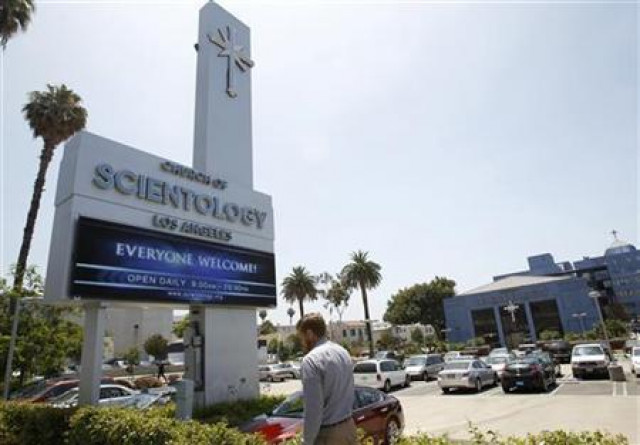Church of Scientology defeats human-trafficking claims case
Two defectors had claimed they were forced to work 100-hour weeks for low pay under the threat of discipline.

The court rejected two former ministers' claims that the Church of Scientology committed human-trafficking violations by forcing them to work 100-hour weeks for low pay under the threat of discipline.
The Church of Scientology was founded by science fiction writer L Ron Hubbard, and it describes its practices as a religion. The organisation has attracted followers including Tom Cruise, whose recent divorce from Katie Holmes brought the religion into the spotlight, with media reports saying Scientology was central to the breakup.
Marc Headley and his wife, Claire, were raised in scientology and joined the church's upper echelon, Sea Organisation, as teens. Members of the inner circle commit to working long hours, not having children and living communally under strict rules. In return, the church provides all living necessities and a $50 weekly stipend. Marc Headley said he received counselling from Cruise himself, according to an article he wrote for The Daily Beast.
After fleeing Sea Org, the Headleys sued the church in 2009 under a human-trafficking law that makes it a crime to force people to work under the threat of physical or psychological harm.
Marc Headley alleged three instances of physical abuse in his 15 years with Sea Org and described having to hand-clean human excrement from a pond as discipline. His wife claimed that the church forced her to have two abortions. The couple said they did not flee out of fear of being followed and pressured to return.
Lawyers for the church argued that the Headleys remained with the religious order under their own free will, and the 9th US Circuit Court of Appeals agreed.
"The Headleys joined and voluntarily worked for the Sea Org because they believed that it was the right thing to do, because they enjoyed it," Judge Diarmuid O'Scannlain wrote for a unanimous three-judge panel in Pasadena, California.
The Headleys lived off the Sea Org base and had ample opportunity to leave, with access to vehicles, phones and the Internet, he wrote. As a result, the human-trafficking law did not apply.
Kathryn Saldana, a lawyer for the Headleys, did not immediately respond to a request for comment.
Eric Lieberman, a lawyer for the church, welcomed the decision. "The court recognises the alleged strict lifestyle constraints of the religious order had nothing to do with their repeated choice to remain," he said.



















COMMENTS
Comments are moderated and generally will be posted if they are on-topic and not abusive.
For more information, please see our Comments FAQ